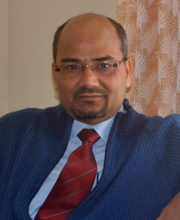Applying Lean Thinking to Smart Cities: Environmental Sustainability and Resources Waste Reduction
João S. Matos and Vitor Santos
Universidade Nova de Lisboa/NOVA IMS, Lisbon, Portugal
Abstract—Inequality in population distribution between urban and rural areas tends to increase in the next years, in favor of cities. As this trend is not expected to revert in the next years, cities should be eager to receive their share of inhabitants; at the same time, they must be prepared to offer citizens the services matching their expectations, although hosting more people requires either a higher need of resources or a better usage of the available ones. In this article, the authors propose applying Lean Thinking to develop an integrated administration system for a city within the Smart Cities’ paradigm, allowing urban managers to take advantage of Information and Communication Technologies (ICT) for a better utilization of resources, minimizing waste of the available reserves.
Index Terms—Lean Thinking, waste, resources, Smart City, ICT
Cite: João S. Matos and Vitor Santos, "Applying Lean Thinking to Smart Cities: Environmental Sustainability and Resources Waste Reduction" Journal of Advanced Management Science, Vol. 6, No. 3, pp. 174-178, September 2018. doi: 10.18178/joams.6.3.174-178
Cite: João S. Matos and Vitor Santos, "Applying Lean Thinking to Smart Cities: Environmental Sustainability and Resources Waste Reduction" Journal of Advanced Management Science, Vol. 6, No. 3, pp. 174-178, September 2018. doi: 10.18178/joams.6.3.174-178
